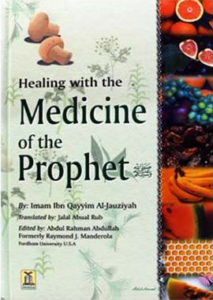Mental health is as significant as physical health, yet it is often met with less empathy and understanding, particularly within various cultural contexts. Islam, however, provides a holistic approach to well-being, which includes psychological health. Exploring what the Quran says about mental health is essential in a world where psychological complexities are increasingly prevalent.
Explore Our Category of Islamic Health Books to enrich your knowledge.
Embracing Wholeness: The Quranic Concept of Health
The Integrated Self: A key concept in Islam is that of an integrated self, where physical, mental, and spiritual health are intertwined.
Balance and Moderation: The Quran promotes a life of balance (Quran 55:7-9), which is crucial for mental well-being.
Quranic Verses and Mental Health Wisdom
Healing for Hearts
- Tranquility through Remembrance: ‘”Indeed, in the remembrance of Allah do hearts find rest.” (Quran 13:28) This verse is often cited as supporting the idea that spiritual practices can bring peace to a disturbed mind.
- Recitation as Therapy: The act of reciting the Quran itself offers rhythmic calmness that can soothe anxious thoughts.
The Struggle of the Soul
- Acknowledge Inner Struggles: The Quran openly talks about feelings of fear, despair, and sadness experienced by Prophets and believers alike, validating the human experience of psychological distress.
- Spiritual Resilience: Verses that address perseverance, such as “So verily, with the hardship, there is relief,” (Quran 94:6) offer comfort and resilience in facing life’s psychological challenges.
The Prophet’s Compassion Towards Mental Suffering
Prophetic Understanding
Empathetic Responses: The Prophet Muhammad (PBUH) showed profound empathy towards individuals suffering from mental stress, an attitude that encourages believers to treat mental health issues with compassion and understanding.
Community Support
Unity and Care: Islam emphasizes the importance of community and social support, reflected in Quranic verses encouraging believers to be supportive and mindful of one another’s well-being.
Mental Health Narratives in the Stories of Prophets
Examples of Resilience
- Prophet Ayub (Job): His life reflects patience and hope amidst physical and emotional tribulations.
Lessons in Grief
- Prophet Ya’qub (Jacob): His story showcases the natural process of grieving a loss and the emotional pain that accompanies it.
Integrating Islamic Teachings and Psychological Well-being
Utilizing Islamic Coping Mechanisms
- Dua (Supplication): The Quran is replete with supplications that can be a medium for expressing distress and seeking help.
- Tawakkul (Trust in God): The concept of Tawakkul encourages a form of cognitive restructuring, allowing individuals to place their worries in God’s hands.
Psychological Ethics in Islam
- Stigma-Free Approach: The Quran’s approach is free from stigma, addressing mental health as part of human experience and divine test.
- Intellectual and Emotional Nourishment: Learning from the Quran nurtures intellect and emotions, an essential part of maintaining a healthy mind.
The Quran and Contemporary Mental Health Dialogues
Compatibility with Modern Therapies
- Convergence Points: The Quran’s guidance on patience, gratitude, and reflection aligns with contemporary psychological concepts such as mindfulness and cognitive-behavioral techniques.
Challenging Misconceptions
- Clarifying Myths: The Quran’s stance reveals that mental health issues are not a result of weak faith or lack of spirituality.
Conclusion: The Compassionate Guidance of the Quran
The Quran provides a framework for understanding and addressing mental health, encouraging believers to seek health in all aspects of life. Integrating its teachings can offer solace to those in psychological distress and promote a broader understanding that encompasses psychological empathy and care.
FAQs Related to Mental Health in the Quran
What does the Quran say about dealing with anxiety and stress?
The Quran addresses anxiety and stress as natural human experiences and emphasizes patience, prayer, and trust in Allah as coping mechanisms.
Does the Quran provide any specific prayers or supplications for mental health?
While the Quran does not provide specific “mental health supplications,” it does offer numerous prayers for guidance, patience, relief from distress, and strength that can be beneficial for mental well-being.
How does the Quran view sadness and depression?
The Quran acknowledges sadness and depression as part of the human experience, shown through examples of Prophets who experienced grief. It advocates empathy and support while seeking Allah’s help.
Can we find guidance on mental health through the stories of the Prophets in the Quran?
Yes, the stories of the Prophets in the Quran guide enduring hardship, resilience, and the emotional spectrum of human life.
What does the Quranic approach suggest for Muslims who are experiencing mental health issues?
The Quranic approach suggests seeking support through prayer, community, patience, and reflection. It also implies that seeking help, including professional help, is by Islamic teachings, as long as such treatments do not contradict Islamic principles.











